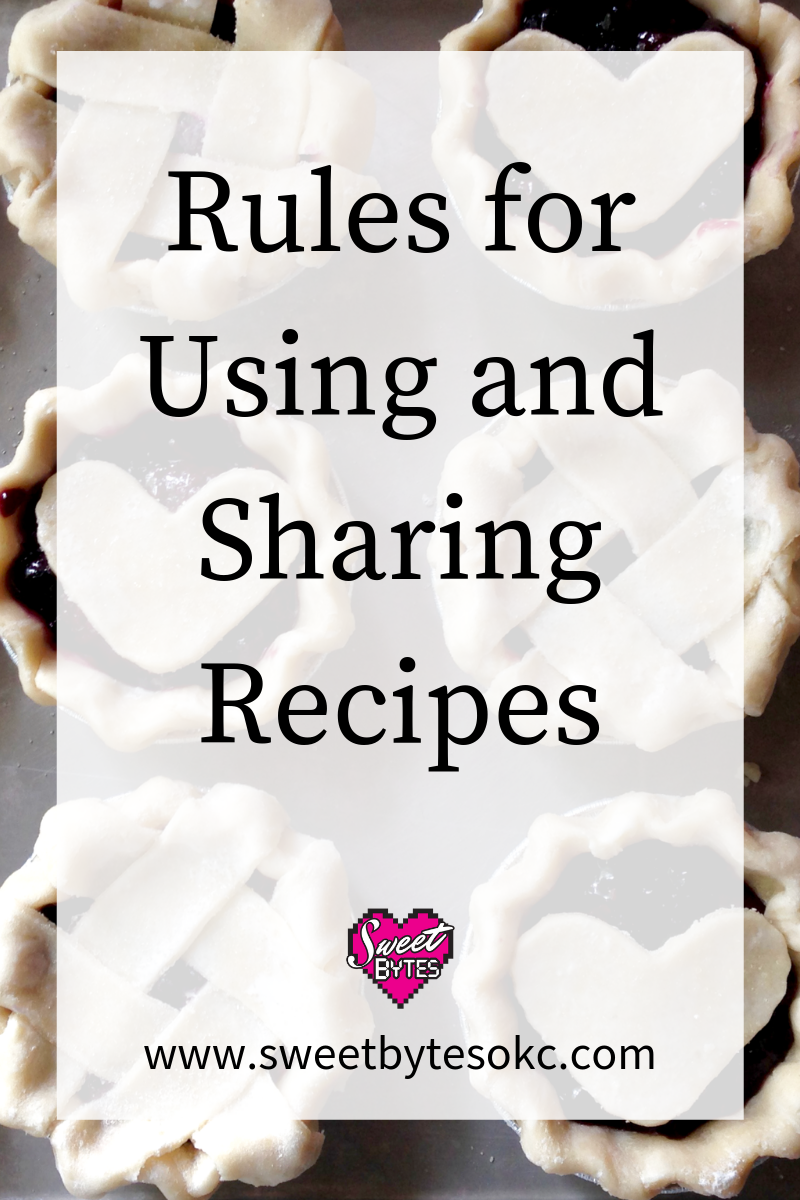When and how to use another baker’s recipes in the world of internet sharing can get tricky. Nobody invents every recipe they use or share, but there is an ethical way to handle yourself when you are publishing content online.
Here are some simple rules for using and sharing another baker’s recipes. These also apply to any original content.
This post contains affiliate links, I earn from purchases made through some of the links here.
1) Don’t Lie.
You will be discovered. People are amazing detectives and have amazing memories. You do not want the wrath of being caught lying on the internet. Really, don’t lie about where you got the recipe or say that it is your original recipe if it’s not.
2) Give credit to the creator.
People work hard, they share their wonderful ideas with you, they wanted you to have more success. Give them credit!
If you want to share the actual recipe, a lot of websites have a section where they tell you how to get permission and some even have a blanket permission statement as long as you follow their requests. If you are going this route, wait until the permission is granted before you post.
3) Don’t use their photos unless you have their explicit written permission.
You have to take your own photos or buy photos or use copyright free photos. Photos are explicitly protected by copyright law. Recipe ingredient lists aren’t, but photos are. You can be forced to pay for damages and pay compensation for using them without permission.
At the very least, your content will receive a not so nice DMCA asking you to remove your content.
4) You can bake their recipe, you can sell the food, you can give the food away.
No need to mention where you got the recipe. If you are asked to share, refer to #1 & #2 above. You can decline an answer by saying, “No, I don’t share recipes,” or “It’s a secret,” or whatever helps you sleep at night.
5) If you decide to share the recipe with your own followers, you must have permission.
This is how it has to be if you are going to copy it directly from their site or book as they wrote it. Again, wait for permission. The recipe’s ingredients aren’t under copyright protection, but their copy (AKA their own words) in the recipe’s instructions is under protection.
6) You must rewrite the copy of the recipe in your own words if you are going to use another’s recipe on your site.
If you want to keep their list of ingredients in your version of the recipe, but change all of the other words that the original creator wrote (instructions, jokes, side notes etc.) then that is acceptable. There is no legal course to stop you from rewriting recipes.
It’s still more friendly to say that you “adapted it from great blogger whoever’s recipe for whatever” and include a link to the content.
7) Even if you change the recipe, give inspiration credit.
If you use their recipe to create your own and you change the original significantly to make it your own, it’s still considered friendly to say that it was “inspired by great blogger whoever’s recipe for whatever” with a link back to their content.
Want more reading? I love this article on food writing expert, Dianne Jacob’s blog “Will Write for Food”: 8 Answers to Copyright Questions About Recipes and Books
Are you doing a lot of food writing?
If you are writing a lot of content about food for your website or another publication, you need this book! This is the most comprehensive book I’ve ever found about food writing. Not to mention, Diane’s writing style will have you feeling like she’s a good friend with only your best interests at heart.
Any questions or comments?
Don’t hesitate to ask any questions, please send me an email! Sometimes it’s just good to have someone in your niche to bounce ideas around!

